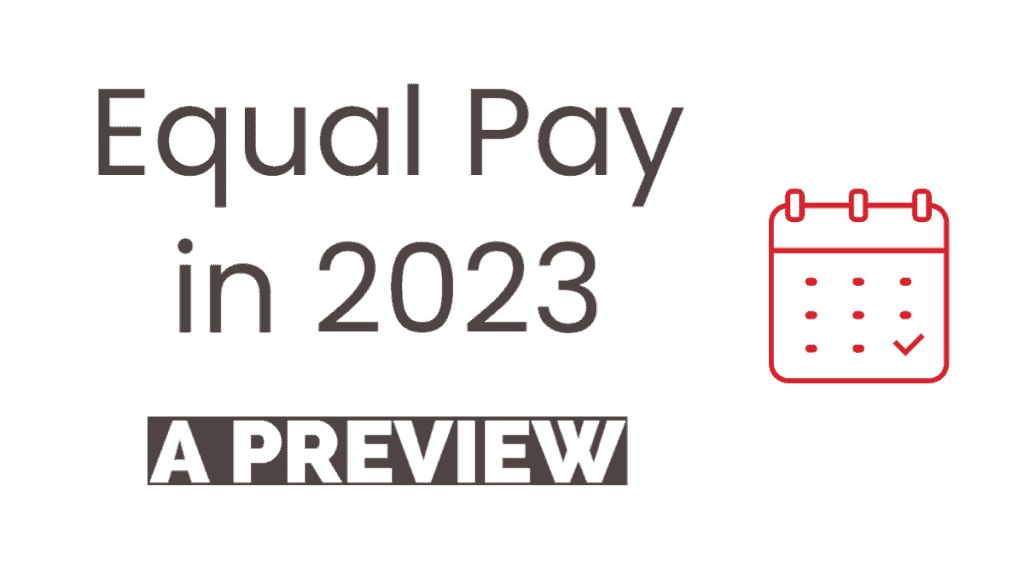
Posted December 18th, 2022 in Legal Insights with Tags The Equal Pay Advisor
Equal Pay in 2023: A Preview
In recent years, equal pay legislation has taken a new form. Gone are the days in which recruiters must merely avoid questions about prior salary history. Now, various states require recruiters to respond to requests about the expected salary for a position or include ranges in job postings at the outset. This momentum will only grow in 2023.
To preview what employers might expect in 2023, we looked at recent legislative proposals in three states that tipped into a Democratic “trifecta” after the 2022 elections. In other words, these states went from divided government to Democratic control, meaning that pay equity legislation now has a better chance of proceeding to law.
- Massachusetts. Lawmakers in Massachusetts have eyed pay transparency for some time. In 2021, lawmakers introduced a proposal to require employers to respond to requests about the anticipated pay scale for a position (S 1208). In 2022, lawmakers upped the ante by proposing not only that employers provide a pay scale in all job advertisements and postings but submit a detailed wage data report to the Secretary of the Commonwealth to be published publicly alongside corporate filings (S 2721).
- Michigan. In Michigan, Gov. Gretchen Whitmer made pay equity a priority for public employees by banning state departments from inquiring about a candidate’s salary history or searching for such history in public records. Lawmakers have also proposed various pay equity bills, including providing pay scales for similarly situated employees for the past three years in response to an employee’s request, prohibiting non-disclosure of wages as a condition of employment, and banning disciplining for discussing wages (HB4585). Michigan lawmakers have also proposed expanding the state equal pay act to require the same pay as comparators in “all of the employer’s operations or facilities” as opposed to federal law, which limits to the “same establishment.” (SB 662).
- Minnesota. Lawmakers in Minnesota used the last trifecta under the Democratic-Farmer-Labor (DFL) party to pass legislation protecting the right of employees to discuss wages. Lawmakers have already proposed several pay equity bills that failed to advance under divided government, including banning private employers from inquiring about salary history (HF403 & SD171). While the legislature’s focus will be on paid sick leave and paid family leave, we might see some additional pay equity proposals on the horizon.
